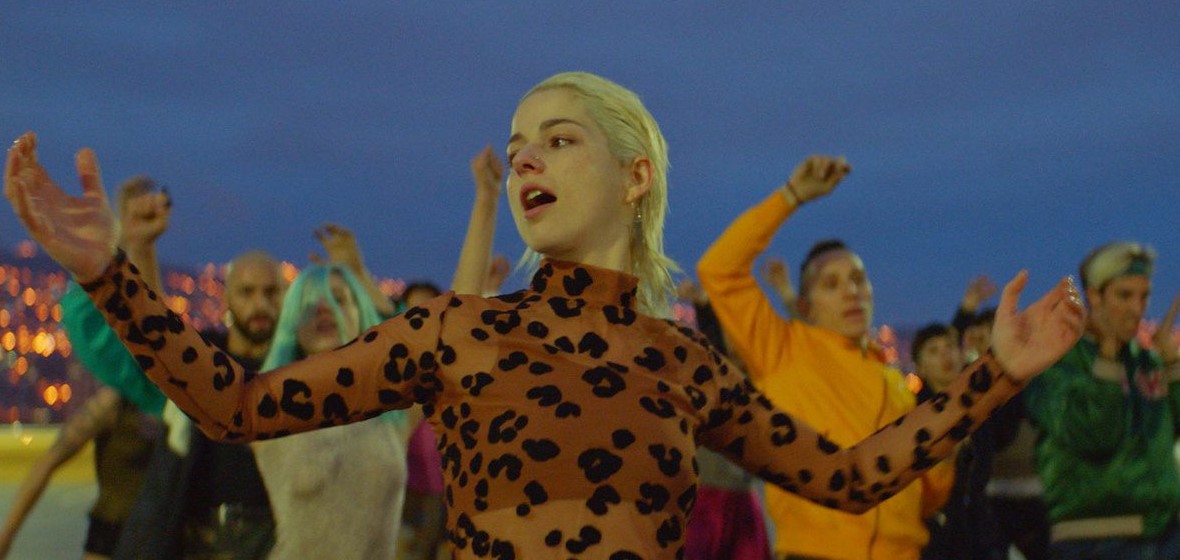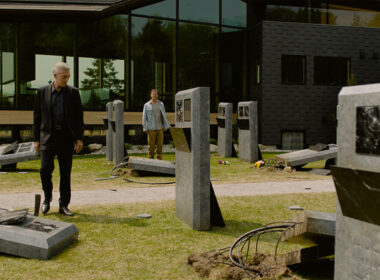Rating: *****
There is no morality in Ema, but there is a moral high ground.
Pablo Larraín’s new film, following his reflective account of Jackie Onassis days after JFK’s death in Jackie, is a stimulating, audacious, and sometimes eccentric film about a woman weaponising the same trauma that almost destroyed her. So in a way, it’s thematically similarly to Jackie that is developed here through the frame of emotional abuse.
The story revolves around Ema (Mariana di Girólamo) regretting sending back her adopted son after he tried to burn her sister to death. In the spur of the moment, pressured by both his family and her husband Gastón (Gael García Bernal), Ema makes that unthinkable act for an adopted mother. To revert an action like this is impossible; after all, no adopting agency would now trust the couple with a child if they quit after one incident, so Ema decides to plot an idea that leads her closer to her child.
The relationship with Gastón is central to the narrative. The director of Ema’s dance troupe, an artistic genius with a cult following but total disdain for the low-brow urban culture, is her boss at work and at home, where he holds a strong emotional grasp on her fragile state of mind. At the start, he revels at pushing the boundaries of what he can tell her, constantly reminding her of the child she left behind, even imagining episodes when her defenceless son calls out for her mother’s help. A master at gaslighting, his goal is not just to control but ultimately destroy.
It comes down to Ema to find a way to break away from this reality and weaponise the trauma for her benefit. She finds shelter with a group of female dancers. She indulges in all the rule-breaking she can, from setting cars on fire with an industrial flamethrower to quitting her renowned interpretive dancing role and creating a troupe of reggaeton dancers in the rooftops of Valparaíso, to the shock of her husband. It almost feels like Ema is dehumanising herself at every turn, but that’s part of the message that Larraín is trying to convey – that as an audience, we don’t take a woman’s trauma for granted.
The film is almost constructed backwards. The start is fragmented and confusing, and all the information drip-fed in cryptic vignettes. It takes time to understand what happened to Polo, the adopted son, and even more about how Ema and Gastón fit into the narrative. As the story progresses, all the pieces start to fall in place in the lead-up to a finale so plot-heavy it’s mostly just exposition dialogue. Such a shift of style packs a surprising emotional punch.
The film is vibrant and modern, shot with the palette of someone high on a drug cocktail, the colours twirling in front of them. It’s also the contribution of Chilean house producer Nicholas Jaar, who mixes the confronting experimental art world with the audacity of the urban house and reggaeton. Both visuals and sound merge complemented, like foam on water and sweat on the skin. To Larraín’s script, so acutely aware of the infamous effect of toxic masculinity and the psychological toll of trauma, it adds blazing colour accompanied by bass dropping on a hard beat.
It’s Girólamo who stands out from everyone else. Her Ema is a roaring character that she never lets us understand entirely. By the time Ema reveals her plan, and that what we thought to be a coping mechanism was part of a plot to give Ema complete control of her own story, we’re already too late. Our expectations dictate what we think of someone like her, and it’s those exact expectations that have to be checked. Ema isn’t a sympathetic character, but then again, she doesn’t have to be. Her depth is such it’s almost a futile exercise to even try to understand her. And then why should we? What right do we have to judge, comment and protest?
Ema is our shame. As it ends and the questionable morality of Ema’s actions dawns on us, it’s essential to realise her status as a sympathetic character is not the point. Our unreasonable hunger for it is.




